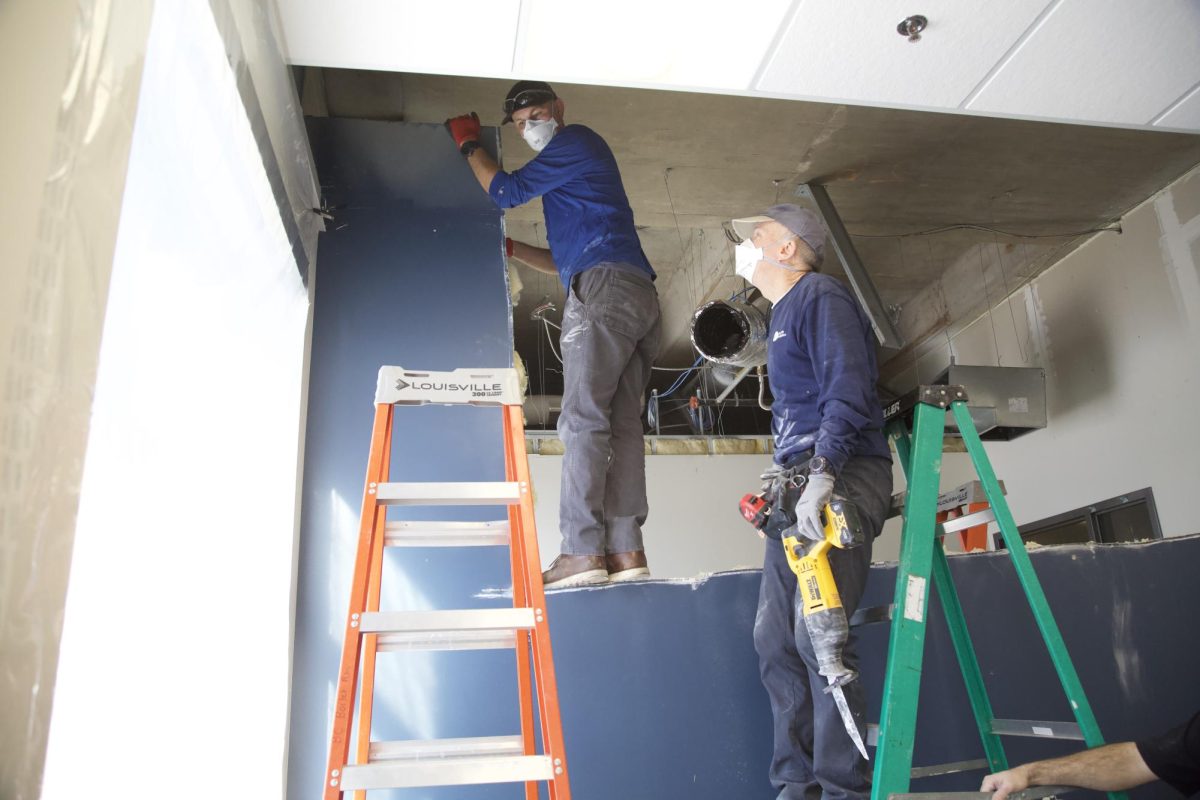With a projected deficit of $6 million for next year, Bethel University faces tough decisions for decreasing its expenses.
By Alayna Hoy
On Jan. 17, Bethel administration announced a projected budget shortfall of approximately $6 million for next year. In the weeks following the announcement, Bethel employees have begun the process of deciding how to cut expenses and increase funding in order to eliminate the deficit.
One way Bethel can decrease the deficit is by increasing enrollment, a difficult task in the current higher education climate, which has seen enrollment decreasing for many universities.
On Feb. 19, Bethel’s communications department released an article detailing Bethel Foundation- sponsored initiatives to increase enrollment and affordability. They’re funding tactics such as reserved parking spots for prospective students, a new eight-person golf cart and iPads in the admissions office by giving Strategic Growth Awards to faculty and staff with ideas to grow Bethel.
Still, administration does not expect an increase in enrollment big enough to solve the budget problem. Certain expenses will have to be eliminated to balance Bethel’s budget. Bethel’s Executive Vice President and Provost Deb Harless said hard decisions will be made that will impact the jobs the some employees.
Associate theater professor and faculty senator Brent Adams said faculty members are frustrated about having to justify their existence, especially since they did not cause the budget problems in the first place. He notes that administration has largely avoided assuming responsibility for the shortfall.
“From the faculty I’ve spoken to, this is a significant concern,” Adams said. “If there isn’t a clear accounting for the mistakes that have been made, what’s to keep us from ending up right back here again?”
Already, a temporary salary freeze for all Bethel faculty, staff and administration has been issued for next year. Staff positions will be cut, and faculty positions may be next. Currently, Harless is collaborating with faculty leaders to decide how working groups will find budget solutions within academic programs, which will likely involve making expense cuts.
“I think the perspective of most faculty is that our work is a vital part of the product of the university,” Adams said. “It seems counterproductive to try to increase enrollment and revenue while cutting away at the primary means for generating it.”
Several students and alumni would agree. On Feb. 27, English literature and writing graduate Kelsey Widman began a Facebook group message to support Bethel faculty through the budget shortfall. Widman asked students and alumni to email Bethel’s board of trustees by March 1 with stories of how faculty have impacted their lives.
A sample email template, prepared by Widman and attached to the Facebook message, asks the board of trustees, “to hold the administration accountable for the current financial situation, and to seek solutions for the shortfall that do not erode the teaching that must be the core of a thriving university.”
In two days, Widman’s message group grew to 94 members, several of whom confirmed their plans to follow Widman’s advice and advocate for faculty.
“If faculty bears the brunt of the shortfall, fewer students will have the opportunity for the kinds of life-giving connections that shaped me,” Widman said. “Despite the best efforts of the faculty those time and emotional resources just won’t be there.”
In addition to these potential challenges, students may eventually face an increase in tuition. Harless said in past years Bethel has increased tuition to match increasing expenses, and similar raises may need to occur in the future. However, according to Harless, administration does not intend to raise tuition as the primary way of addressing Bethel’s current budget problems.
Though difficult decisions need to be made, hope still remains.
“I am encouraged by the hard work that faculty and staff are doing to bring forward new programs, services and processes that have the potential to positively impact our new student enrollment and retention of students,” Harless said. “I also believe that God has more work for us to do in preparing our students to serve in ways that matter for God’s kingdom.”
Looking ahead some faculty, such as Adams, share a similar outlook.
“The hope I hear in some circles is that Bethel will come out of this course-correcting process better and stronger,” Adams said. “I am praying to this end, and hoping that this hope will be justified.”




















Al Velasco • Apr 12, 2018 at 5:11 pm
Maybe a group should be formed to pray for Bethel and for wisdom for leaders? Also for faculty who might be impacted. Less pointing of fingers and more locking of arms looking for solutions. As an Alum and parent of 2 Bethel graduates and an incoming freshman, I would be encouraged. I also was an editor of the Clarion. Great days!